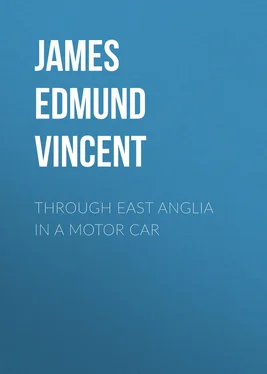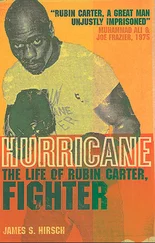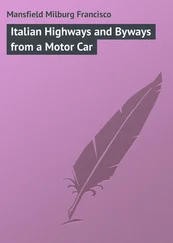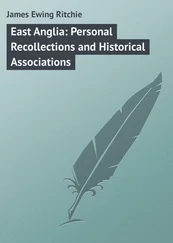James Vincent - Through East Anglia in a Motor Car
Здесь есть возможность читать онлайн «James Vincent - Through East Anglia in a Motor Car» — ознакомительный отрывок электронной книги совершенно бесплатно, а после прочтения отрывка купить полную версию. В некоторых случаях можно слушать аудио, скачать через торрент в формате fb2 и присутствует краткое содержание. Жанр: Путешествия и география, foreign_antique, foreign_prose, на английском языке. Описание произведения, (предисловие) а так же отзывы посетителей доступны на портале библиотеки ЛибКат.
- Название:Through East Anglia in a Motor Car
- Автор:
- Жанр:
- Год:неизвестен
- ISBN:нет данных
- Рейтинг книги:3 / 5. Голосов: 1
-
Избранное:Добавить в избранное
- Отзывы:
-
Ваша оценка:
- 60
- 1
- 2
- 3
- 4
- 5
Through East Anglia in a Motor Car: краткое содержание, описание и аннотация
Предлагаем к чтению аннотацию, описание, краткое содержание или предисловие (зависит от того, что написал сам автор книги «Through East Anglia in a Motor Car»). Если вы не нашли необходимую информацию о книге — напишите в комментариях, мы постараемся отыскать её.
Through East Anglia in a Motor Car — читать онлайн ознакомительный отрывок
Ниже представлен текст книги, разбитый по страницам. Система сохранения места последней прочитанной страницы, позволяет с удобством читать онлайн бесплатно книгу «Through East Anglia in a Motor Car», без необходимости каждый раз заново искать на чём Вы остановились. Поставьте закладку, и сможете в любой момент перейти на страницу, на которой закончили чтение.
Интервал:
Закладка:
Truth to tell, Ipswich on the Gipping, which becomes the Orwell and an estuary lower down, seemed to me then an ancient city showing, except in a few picturesque houses and the gateway of Wolsey's College, few signs of antiquity. If it cannot be called happy in having had no history, for it was plundered by the Danes in 991, it has had little cause for unhappiness of that kind since the Conquest; it has produced no really famous man except Wolsey, though Gainsborough lived in it for some years; and its churches, although not quite devoid of interest, are not striking enough to delay a motorist. Note, in passing, not the least advantage of an exploring tour by motor. You need neither spend time in examining that which is barely worth the process on the ground that there is nothing else to be done, nor hurry away from that which is interesting, in order to catch a train; but, staying so long as seems pleasant and no longer, you may be transported when you please, rapidly and pleasantly, to scenes you have reason to believe to be worthy of your regard.
In these circumstances, after an admiring glance at the famous Sparrowe's House in the Butter Market, close to the hotel, I frankly betook myself to an effort to follow the Wellers, father and son, Mr. Pickwick and his followers, through an eventful day. This stable-yard round the corner to the left, where the Panhard was now being furbished up, was the same on which Mr. Weller, senior, looked when, "in a small room in the vicinity," he discussed a pot of ale and the "gammoning" of Sam, and drank to the toast, "May you soon vipe off the disgrace as you've inflicted on the family name." The office in the courtyard was doubtless that at which he got his "vaybill." Walking about these very streets Sam wormed himself into the confidence of the lachrymose Job Trotter. In this inn parlour Mr. Peter Magnus, alias Jingle, splendidly attired, made a hollow pretence of breakfasting with Mr. Pickwick; here the latter gave his simple hints on courtship and proposal, and here were seen "the joyous face of Mr. Tupman, the serene countenance of Mr. Winkle, and the intellectual lineaments of Mr. Snodgrass." In this room was enacted that memorable scene when Mr. Magnus presented Miss Witherfield to Mr. Pickwick and Miss Witherfield screamed, but neither she nor Mr. Pickwick was indelicate enough to mention the cause—his unwitting invasion of her chamber overnight. Rushing out of this room the lady, after bolting herself into her bedroom, went forth in search of Mr. Nupkins and apprised him of the forthcoming duel, which there was not really much reason to anticipate. Where exactly Miss Witherfield saw Mr. Nupkins I am unhappily not able to say, nor yet, and for the same reason, whither Grummer, with his myrmidon Dubbley and his "division," each with a short truncheon and a brass crown, conducted Mr. Pickwick and Mr. Tupman in the old sedan-chair; but for all that it is easy to picture the whole of the never-to-be-forgotten scene, all the more memorable in that it never was enacted. In fact, it is no mean regret to me that, on that cold January morning, I was not able to find "the house with the green gate," with the "house-door guarded on either side by an American aloe in a tub." It has eluded me since also. Perhaps it is gone, like a good deal of old Ipswich; possibly some miscreant has had his gate painted white instead of green; perhaps I looked in the wrong place, in the vicinity of St. Clement's Church. It is even within the bounds of possibility that the house with the green gate never had any more real and substantial existence than Mr. Pickwick himself. All I know is that I could not find it.
At noon or thereabouts—time does not worry one in a motor-car, unless one is seeking records—we boarded the Panhard, now "bright as a Birmingham button," and started off up a long and trying hill, in cold, dry, and windless weather, for a circuitous drive, its sinuosities determined by the desires of my friend. A new member was added to the party in the person of a resident at Norwich, desirous of reaching that ancient city in due course, who was supposed to know, and probably did know, every considerable turning of every high road in the two counties of Norfolk and Suffolk. He had not, however, enjoyed much experience as the pilot of an automobile, and he found, as I had in years gone by when I was new to the pastime, that eye and memory were not equal to moving together at a speed proportioned to that of the car. "Which road?" the charioteer would cry—the new passenger was riding astern—when we were from fifty to seventy yards from a fork or a turn, and hesitation would often be visible in the reply, so that it was necessary to slow down and sometimes, having invaded the wrong road, to back out again. This is not criticism, it is rather matter of observation and experience. Only recently have the minds of driving and driven men been called upon to exercise their judgment, to choose a line, as a fox-hunter might say, while they are being carried through space much more rapidly than of yore, and the pace puzzles them at first. You are past a familiar turning in a car in less time than is consumed over approaching it in a dog-cart or on horseback, and the aspect of the turning itself has something strange about it; but you grow accustomed to the new conditions with experience. In fact, motor-cars sharpen the perceptions and spur the intelligence. To venture an audacious travesty, and some even more hardy doggerel:—
… Urgendi didicisse fideliter artem
Exacuit mentem, nee sinit esse pigram.
He who has learned a car to drive
Sharpens his wits and looks alive.
Personally, I sat alongside the driver, a place of honour, if cold, and the mechanic sat at my feet. Pity is wasted on a mechanic so placed at any time, for he likes the position, and it is not so comfortless as it looks by a long way, experto crede . In any case our ex-soldier was a proud man that morning, for his car was a joy to the eye. The day before owner and mechanic were hustings-worn, the car looked battered and dissipated as well as fog-dimmed. Now the brass shone with a glow that would have satisfied the proud commander of a man-of-war, who is the most exacting person living. If that mechanic had read the Greek tragedians he would have known that Nemesis must needs come soon. Brass glittered, varnish shone, all four cylinders worked nobly, but the engine would race from time to time. It became all too clear to him who had the control of the machine, or desired to have it, that he had it not in entirety, since the clutch kept slipping. Hence came power wasted, miles per hour lost, and a definite feeling of discontent in the owner. So, after a hill or two had been climbed without satisfaction, a halt was called on the level. The mechanic did not like it a bit, and he had our sympathy. He had worked hard; he had turned out the car with a creditable appearance; it was crushing to be found out in a single fault. I knew his feelings from experience. To be blamed when you thoroughly deserve it is tolerable; to be blamed for no fault at all is to find consolation in private reflection upon the folly of him, or her, who administers reproof; to discover that one essential point has been forgotten when you have tried hard to remember everything is to be compelled to recognize that, after every willing effort, you only look a fool after all. The mechanic had our sympathy on another ground too. He vowed, of course, that the clutch could not be made tighter; he declared that, if it were, the consequences would be disastrous; for you shall note that your mechanic dearly loves "a bit o' play" in fittings, and abhors a nut screwed quite home. All these things were clear to us, but we were none the less inexorable. As, in starting on a heavy job in carpenter's work, minutes spent in putting a keen edge on to plane and chisel are hours saved in the end, so it is sheer idiocy to muddle on with a motor-car if, at the beginning of the journey, you are aware of something wrong that is capable of being set right on the road. It is, indeed, in detecting the first premonitory evidence of trouble, and in meeting difficulties more than half-way, that the genius of an inspired driver is shown. This little weakness of mechanics for a "bit o' play" is also worth remembering.
Читать дальшеИнтервал:
Закладка:
Похожие книги на «Through East Anglia in a Motor Car»
Представляем Вашему вниманию похожие книги на «Through East Anglia in a Motor Car» списком для выбора. Мы отобрали схожую по названию и смыслу литературу в надежде предоставить читателям больше вариантов отыскать новые, интересные, ещё непрочитанные произведения.
Обсуждение, отзывы о книге «Through East Anglia in a Motor Car» и просто собственные мнения читателей. Оставьте ваши комментарии, напишите, что Вы думаете о произведении, его смысле или главных героях. Укажите что конкретно понравилось, а что нет, и почему Вы так считаете.












